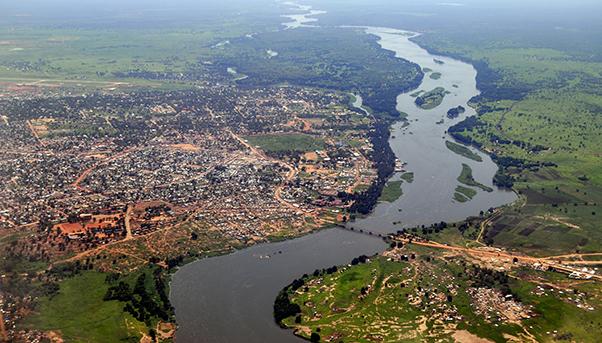“We live in a world that, with regard to growth spins at different speeds. Africa, in this great puzzle, for once, does not show up badly. In fact, the continent offers the greatest number of investments in infrastructure, and is the one that knows best how to create wealth.” Dambisa Moyo is the most prestigious African economist. With a Master's degree from Harvard, she became Paul Collier's pupil at Oxford. After a very successful career in the research centres of British investment banks, she opened her consultancy agency in London. A columnist of the Financial Times, she lives between Great Britain and New York, but she often returns to Zambia, “where I am trying to establish an activity that will allow me to remain there
for longer periods“, she tells us. She was recently in Italy to present her latest book, “Winner Take All: China’s race for resources.” She tells us that she is very optimistic as regards how infrastructure investments are going in Africa.
Is there room for everyone or has the continent become a Chinese colony?
“I don't think so. First, one has to consider that the Chinese slowdown could become even greater that one could possibly imagine. There is room for everyone. It is true that along Harare's roads, Zimbabwe's capital, traders and shopkeepers sell and buy using the yuan; that the carriages of the new metro in Addis Ababa are decorated with Ethiopian and Chinese flags and that in Lesotho's plateaus one can see Chinese workers building one of the many dams, but many of the most prestigious works have been and continue to be awarded to large and middle-sized European and American companies.”
Has there been a slowdown due to the West's recession and its consequences?
“If there has been any, it has been imperceptible and in any case, it has been widely overcome. Infrastructure investments in Africa activate an impressive driving-force for development. Both the hosting Country and the company involved greatly benefit, with a virtuous chain that has created extraordinary results: the IMF (International Monetary Fund) estimates that since 2003, the average growth of all 48 Sub-Saharan Countries has ranged between 5 and 7% per year. In the last ten years, six among the 10 Countries with the strongest growth in the world were African. In 2012 five of these won over China and 21 over India. If we just think that Africa still only contributes to the world's international trade by 2%, we can easily imagine how huge its potential growth is.”

Juba, South Sudan
In a previous book of yours called “Dead Aid“, you stated that when the only people to invest in Africa were Europeans and Americans, the huge amount of money that had been invested did not have any effect on the development of local economies. What has changed since then?
“It may be a coincidence, but following the crisis, Europe's and America's type of intervention has changed, by adopting a more convincing approach, with better targeted direct productive investments. In Africa, at the same time, there has been a growth in the number of democracies with elected governments that are subject to regular control. This is precisely why Europe and America can easily reconquer their lost position, winning over China.”
By using which assets?
“Know-how, skill, and history. The most important infrastructure, of which there is still a great need in Africa, is education which creates entrepreneurial ability, the same ability that allowed Americans to invent Skype and Google. Even the U.S. President, Barack Obama, during his State of the Union Address, said: ‘We cannot give up when it comes to schooling, training and investing in the young. It would be just like throwing away the engine of an airplane that is too heavy, in order to make it lighter.’ Well, with regard to investments in Africa, all this possesses an even greater importance.”


